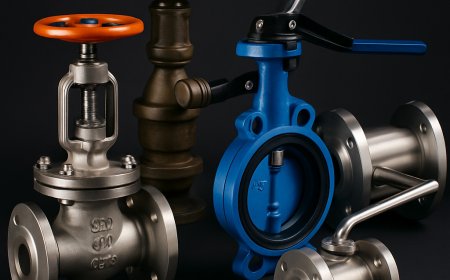Canada Tax Return for NRIs: Everything You Need to Know
Canada Tax Return for NRIs: Everything You Need to Know

As a Non-Resident Indian (NRI) with ties to Canada, you may still have tax responsibilities in the country even after leaving. Many NRIs continue to earn income in Canada through rental properties, pensions, investments, or business ventures. Filing a Canada tax return correctly ensures that you comply with Canadian tax laws and avoid unnecessary penalties or double taxation. In this blog, we explore key points NRIs should know about filing a tax return in Canada.
Who Is an NRI for Canadian Tax Purposes?
In the Canadian tax system, your tax residency is determined by your residential ties. Youre considered a non-resident if:
-
You have permanently severed your significant residential ties with Canada (such as home, spouse, dependents, and social connections).
-
You live outside Canada and only have limited ties (such as bank accounts or investments).
However, even as an NRI, if you earn income from Canadian sources, you may have tax obligations.
When Does an NRI Need to File a Canadian Tax Return?
NRIs typically need to filing canada tax return for NRI if they:
-
Earned rental income from property in Canada.
-
Sold property or other taxable Canadian assets, triggering capital gains.
-
Received Canadian pensions, annuities, RRSP, RRIF, or similar payments.
-
Had business or employment income in Canada.
-
Want to recover tax withheld at source if too much was deducted.
Even if tax is deducted at source, filing a return may help reduce your overall tax liability or reclaim excess tax withheld.
Understanding Withholding Tax for NRIs
Canadian payers must withhold non-resident tax on certain payments:
-
25% on gross amounts like rental income, dividends, royalties, pensions (unless reduced by tax treaty).
-
The India-Canada Tax Treaty often reduces these rates. For example, Canadian dividends paid to an NRI resident in India are typically subject to 15% withholding tax.
If you dont file a return, this withholding tax is considered your final tax liability.
Special Tax Return Elections for NRIs
To potentially reduce tax, NRIs can choose to file:
Section 216 Return For Rental Income
Instead of paying 25% on gross rental income, you can elect to pay tax on net rental income (after deducting expenses like property tax, repairs, insurance, mortgage interest).
Section 217 Return For Pension/Annuity Income
If you received Canadian pension or similar income, a Section 217 return allows you to calculate tax as if you were a resident. This may lower your tax or entitle you to refunds.
Filing Deadlines for NRIs
? April 30 General due date for tax returns (or the next business day if April 30 is a weekend/holiday).
? June 30 Deadline if you elect under Section 216 or 217.
? April 30 Deadline to pay any balance owing, regardless of filing date.
How NRIs Can File a Canada Tax Return
Since NRIs cannot use NETFILE, you have to:
-
Complete the paper return forms (e.g., T1, S216, S217 as applicable).
-
Mail the completed forms to the CRAs designated tax center.
-
Attach all supporting documents, including slips (T4A, NR4) and proof of expenses.
Many NRIs hire a Canadian tax preparer familiar with non-resident tax rules to ensure accuracy and claim all eligible deductions.
Documents Youll Need
Before you file, collect:
-
NR4 or T4A slips showing income and tax withheld.
-
Records of rental expenses or business expenses (if applicable).
-
Sale documents for any Canadian property sold.
-
Tax treaty residency certification if you are claiming treaty benefits.
-
Clearance certificate application details (if you sold taxable Canadian property).
Double Taxation Relief
Thanks to the India-Canada DTAA, you can:
-
Claim reduced tax rates on certain incomes at source.
-
Claim foreign tax credit in India for taxes paid in Canada (subject to Indian tax rules).
What If You Dont File?
? Late filing can result in penalties 5% of tax owing plus 1% per month (up to 12 months).
? Unfiled returns can delay property clearance certificates if you sell Canadian real estate.
? Refund opportunities (overpaid tax) may be lost if you miss filing deadlines.
Final Words
NRIs with Canadian income should take filing requirements seriously. By filing on time, electing the right type of return, and using treaty benefits, you can minimize your tax burden and stay compliant. When in doubt, professional advice ensures you meet your obligations while optimizing your tax position.



































